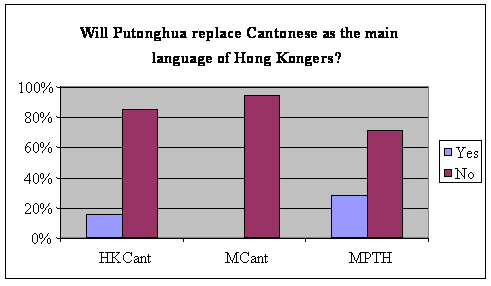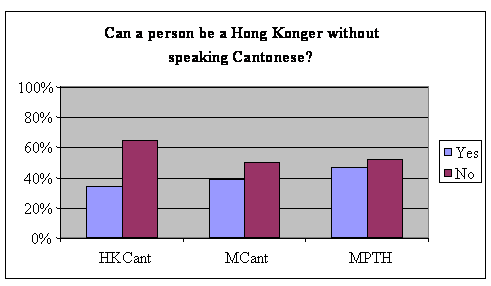Mandarin is less well loved in Hong Kong than most other “icons” of China, according to the results of a survey there.
Although the percentage of those who described themselves as “averse” (kàngjù) to Mandarin is quite small (in the single digits), it has quadrupled since 2006 (1.8% to 7.3%). (I’m using the English and Mandarin terms given in the source material.)
Meanwhile, the percentage of those who are “affectionate” (qīnqiè) toward Mandarin has dropped, though not to an all-time low. And the percentage of those who are “proud” (zìháo) of Mandarin is also down, though it remains much higher than it was in 1994 when the survey began.
Affection toward, pride in, and averseness to Mandarin in Hong Kong, 1994-2010
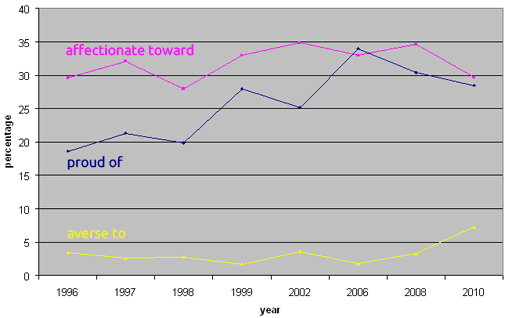
Interestingly, averseness to Mandarin has been growing, while averseness to most other mainland icons has been dropping.
In the graphs below I have omitted some surveyed icons — Hong Kong’s regional flag/emblem, the night view of Victoria Harbor, the Legislative Council building, the Hong Kong and Shanghai Bank Building, and the Bank of China Building — to keep the graphs from getting too busy looking and because those are within Hong Kong itself.
The lines for Mandarin are in dark red. Click to enlarge the images to a useful size.
Percentage of respondents feeling “averse to” Mandarin (“Putonghua”) and other Chinese icons

Percentage of respondents feeling “affectionate towards” Mandarin (“Putonghua”) and other Chinese icons
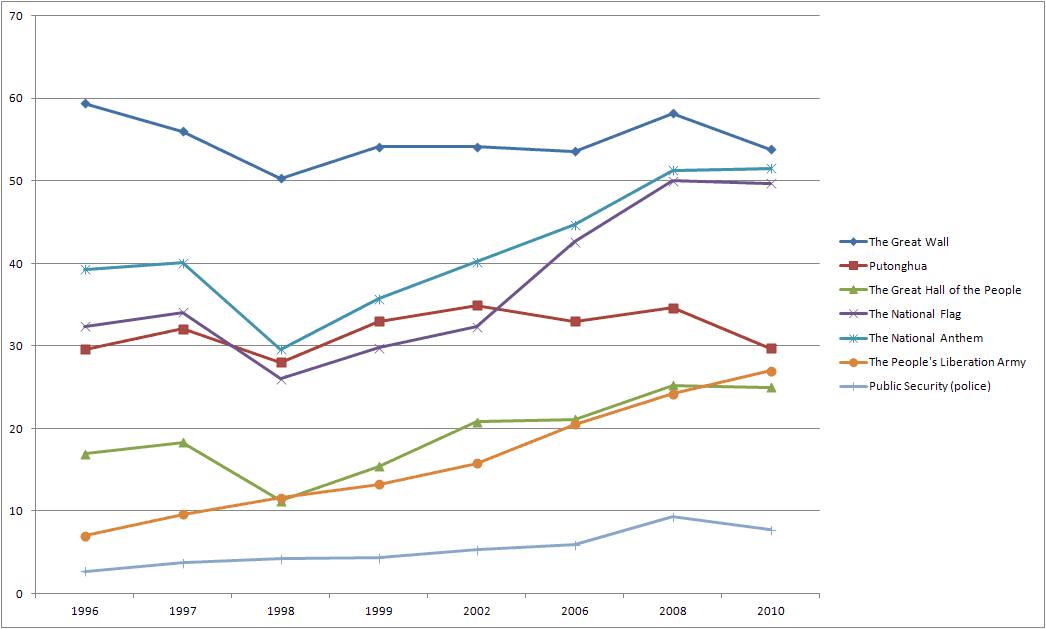
Percentage of respondents feeling “proud of” Mandarin (“Putonghua”) and other Chinese icons
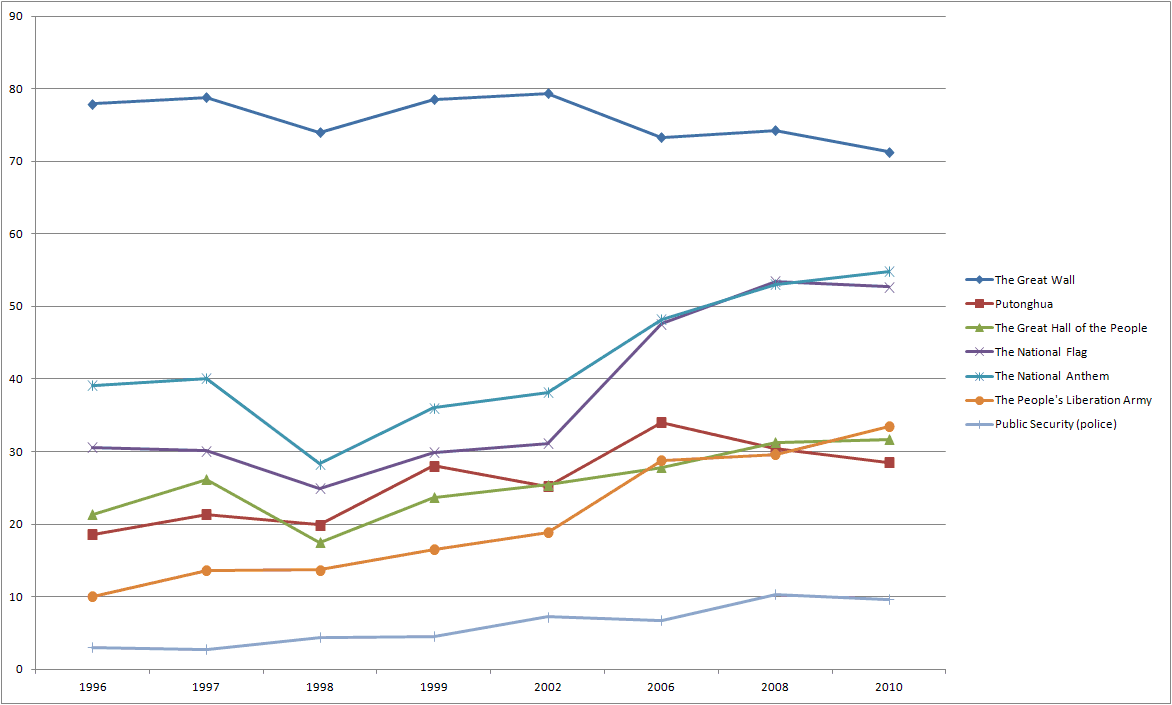
But even though Mandarin hasn’t gained much affection recently from the people of Hong Kong, it’s still far more liked than the least popular of the PRC’s institutions: the police (gōng’ān).
sources and further reading:
- Xiānggǎngrén de shēnfen yǔ guójiā rèntóng: diàochá jiéguǒ (香港人的身份與國家認同:調查結果), Center for Communication Research at the Chinese University of Hong Kong
- The Identity and National Identification of Hong Kong People: Survey Results, Center for Communication Research at the Chinese University of Hong Kong
- Hong Kong’s pride in Putonghua, Pinyin News, December 2, 2006

